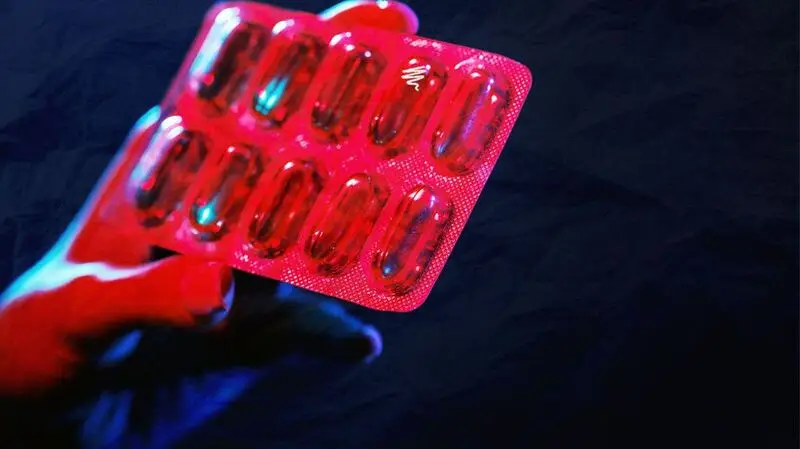
- Out of five non-statin cholesterol-lowering drug classes, only cholesterol absorption inhibitors are found to reduce the risk of liver cancer, a new study has found.
- The link between liver cancer and high cholesterol is fatty liver disease.
- Most people with this condition have high cholesterol, and the disease has been linked to liver cancer.
- Liver cancer is preventable with a Healthy lifestyle, limited alcohol consumption, and not smoking cigarettes.
A new observational study investigates whether five classes of non-statin cholesterol-lowering drugs can reduce the risk of liver cancer.
Using one of the five types of these medications, cholesterol absorption inhibitors, was found to lower the risk of developing liver cancer by 31%.
The most common cholesterol absorption inhibitor is ezetimibe, which is marketed as Zetia and Ezetrol.
Of the remaining medications the researchers tested, fibrates, niacin, and omega-3 fatty acids had no effect on liver cancer risk.
Bile acid sequestrates appeared to slightly increase, by 5.31%, the chance of liver cancer, though the researchers’ findings were inconsistent regarding this class of drugs. They say more research is necessary to determine if they truly represent a health threat, or what their effect on liver cancer risk is.
Cholesterol absorption inhibitors — indeed, all the classes investigated in the study — are designed to help control cholesterol and lipid levels.
In contemporary medical practice, physicians primarily prescribe statins to reduce patients’ cholesterol levels. Nonetheless, non-statin cholesterol-reduction medications still have their place.
For the study, researchers analyzed cases recorded in the Clinical Practice Research Datalink, which includes roughly 7% of the U.K. population. Individuals represented in the data were seen by clinicians between 1988 and 2019. They ranged in age from 10 years old to 90 years old.
Among their number were 3,719 people with liver cancer and 14,876 matched controls who did not have cancer.
The researchers also tracked the incidence of type 2 diabetes and chronic liver disease.
The study is published in the American Cancer Society Journal
Statins lower cholesterol in the body by inhibiting the 3-hydroxy-3-methylglutaryl coenzyme A (HMG-CoA) reductase. HMG-CoA reductase is an enzyme in the liver that plays a crucial role in producing cholesterol.
“Think of it,” said Wael Harb, MD, “as a factory worker in a production line that makes cholesterol. Statins work by inhibiting this enzyme and essentially slowing down the production line, which leads to lower levels of cholesterol in the blood.”
Harb is a board-certified hematologist and medical oncologist at MemorialCare Cancer Institute at Orange Coast and Saddleback Medical Centers in Orange County, CA. Harb was not involved in the study.
As a cardiologist, Cheng-Han Chen, MD, board certified interventional cardiologist and medical director of the Structural Heart Program at MemorialCare Saddleback Medical Center in Laguna Hills, CA, who is not involved in the study, is also concerned with lowering his patients’ cholesterol.
“By far the first line treatment is statins,” said Chen. However, “There are a few people occasionally who get side effects, the most common being muscle aches, joint pain. Because of that, they may have to switch to different statins. If they continue to have symptoms, we consider using non-statin medication.”
Harb also mentioned elevated liver enzymes as a reason to prescribe something other than a statin.
“Sometimes a statin is contraindicated because someone has underlying liver disease and would not be able to receive statins,” he said.
Statins and non-statins may also be used together in some cases. “Sometimes a statin is not controlling cholesterol, so we add the non-statin medication as an adjunct,” said Harb.
While he was reluctant to criticize the study, Chen noted that the classes of medications it investigated are not very much in use these days. “Almost all of these are not part of my tool kit these days because statins in general have been shown to be much more effective,” he said.
In addition, said Chen, “we actually have other non-statin therapeutics that are much more effective than these, such as
“They’re injectables,” he explained. “They’re like the newest kid on the block, but they are also very effective, even more so than statins.”
Asked to speculate why only a single class investigated in the study reduced the risk of liver cancer, Harb suggested, “A cholesterol absorption inhibitor would lower the cholesterol level, which in turn can impact the cell membranes and the signaling process within them.”
“We know that cholesterol is involved in cellular signaling and proliferation, especially if there are certain factors like
In addition, he surmised, it may be decreasing the availability of the substrate needed for liver cancer cells’ growth factor.
“We know that there is some association between fatty liver and liver cancer. People who have fatty liver tend to have high cholesterol. So there is a correlation between fatty liver, high cholesterol, high triglycerides, and the risk of developing liver cancer.”
— Wael Harb, MD
The good news Harb said was that liver cancer was a preventable disease.
“We know that alcohol consumption — excessive alcohol consumption — is highly linked to liver cancer, especially when it leads to liver cirrhosis. Tobacco use, because of its [carcinogen content], affects the liver. Obesity causes non-alcoholic fatty liver disease and causes liver cancer,” he explained.
Other potential factors are uncontrolled type two diabetes and hepatitis B and C, although, Harb noted, “now we have a curative treatment for Hepatitis C.”
“So we can prevent, and we can treat, the conditions that can lead to liver cancer. It’s a disease that can be prevented, and we can decrease the risk of developing liver cancer,” he concluded.





